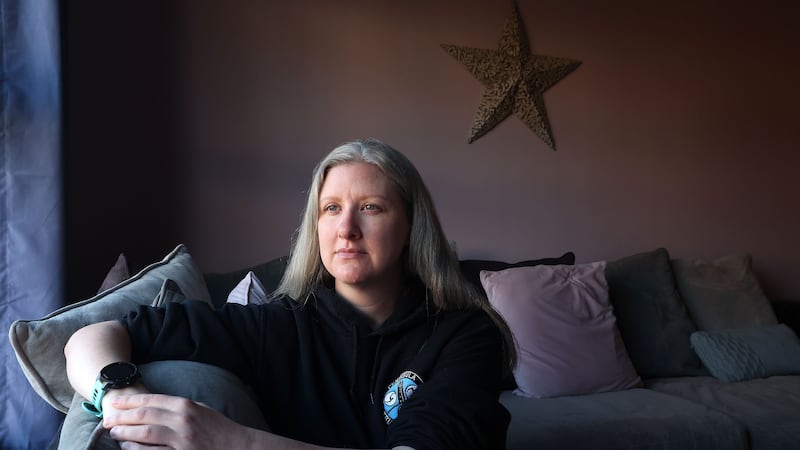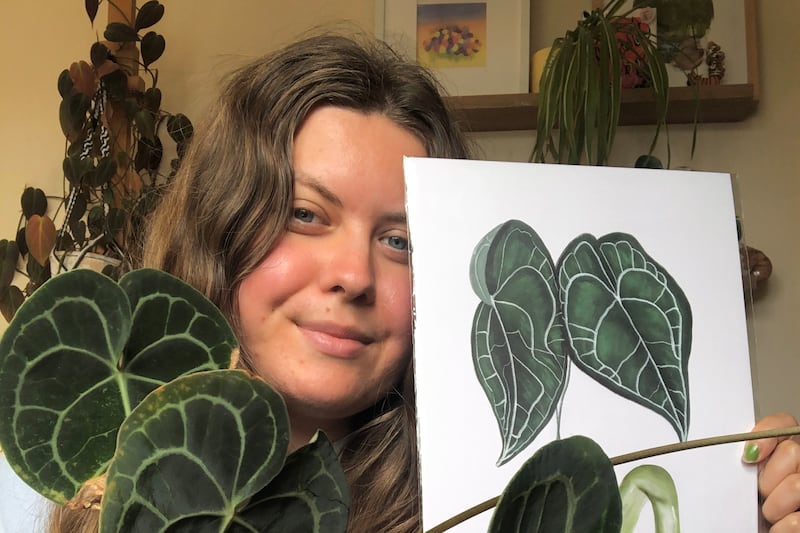A Co Down mother who left her career to become an unpaid carer has spoken of her frustration at the lack of support available.
Barbara Morrow (43) from Ballyhalbert left a career of 18 years in the civil service to care full time for her children Zachary (9) and Scarlett (7).
Both children have autism and Zachary also has a lifelong bowel disease which requires constant care.
Speaking to The Irish News, Barbara said she has never questioned her choice but often feels like the odds are stacked against her.
This includes funding cuts to local community groups and a lack of opportunity to re-train for any future return to the workforce.
Earlier this week, MLAs from Stormont’s five largest parties signed a joint letter demanding action on a new government strategy for carers in Northern Ireland.
Despite the exhausting schedule, financial pressure and risk of burnout facing many unpaid carers, Barbara said the stereotype of being a "sad, downtrodden" figure was not her experience.
Taking joy in her family life, she also competes in triathlons but says the goodwill shown by hundreds of thousands of carers is being abused.
“I’m coming into my tenth year of caring. My son Zachary was ill from birth, with multiple food protein allergies and severe reflux disease," she said.
“So my husband Peter (44) and I were given a baptism of fire. Zachary was also diagnosed as being autistic and has a lifelong bowel disease.
“He has extremely high care needs. My daughter Scarlett (7) is also autistic and has anxiety needs, so we have quite a lot to deal with.”
She called walking away from her career "extremely challenging," and brought with it a loss of identity.
“My application for part-time working was actually refused for business reasons. That’s a sad fact for many carers," she said.
“The loss of my career and role was massive for me. But, I did it very willingly because my children’s needs will always come above everything else.
With her children now attending school, she said the ability to retrain for the workforce seems out of reach.
“Now I’m in my mid-forties, no-one wants to employ me. The longer you’re out of the workforce, the less opportunities you have," she said.
“We also don’t qualify for any form of retraining. We don’t have the financial resources for me to do a degree at home so I’m stuck for want of a better word.”
On the happy side of caring, she said: “I didn’t want to put across this image of the sad, downtrodden person. That is not what I’m about at all.
“I’m a triathlete and an open water swimmer. I can maybe achieve an awful lot more than other people can, but I think it's important to show that carers can have a life."
With carers estimated to save the health and social care service across the UK billions every year, Barbara said it was frustrating to see how little support was extended by Westminster and "the non-sitting charade at Stormont".
"They play on the fact that we are taking care of our loved ones," she said.
“And yet we are not financially valued. We are seen as economically inactive. They refused to ringfence any cost of living support for us in the Spring budget but they expect us to provide 24 hour care.
"I think it’s an absolute disgrace. They say verbally that they value us and that we’re just amazing people, but they don’t put their money where their mouth is."
Craig Harrison from Carers NI said that an updated carers strategy would help to catch Northern Ireland up with other UK regions.
“We see so many carers on a daily basis that have just reached breaking point as a result of unrelenting care duties and very patchy support from the health and social care system with rare to no opportunities for a break," he said.
“We spoke to one person who had just accessed respite for the first time in 15 years, that isn’t uncommon.
“If we could follow some of the steps being taken in places like Scotland it would make such a difference to so many carers.”








